What's Needed to Combat Food Waste
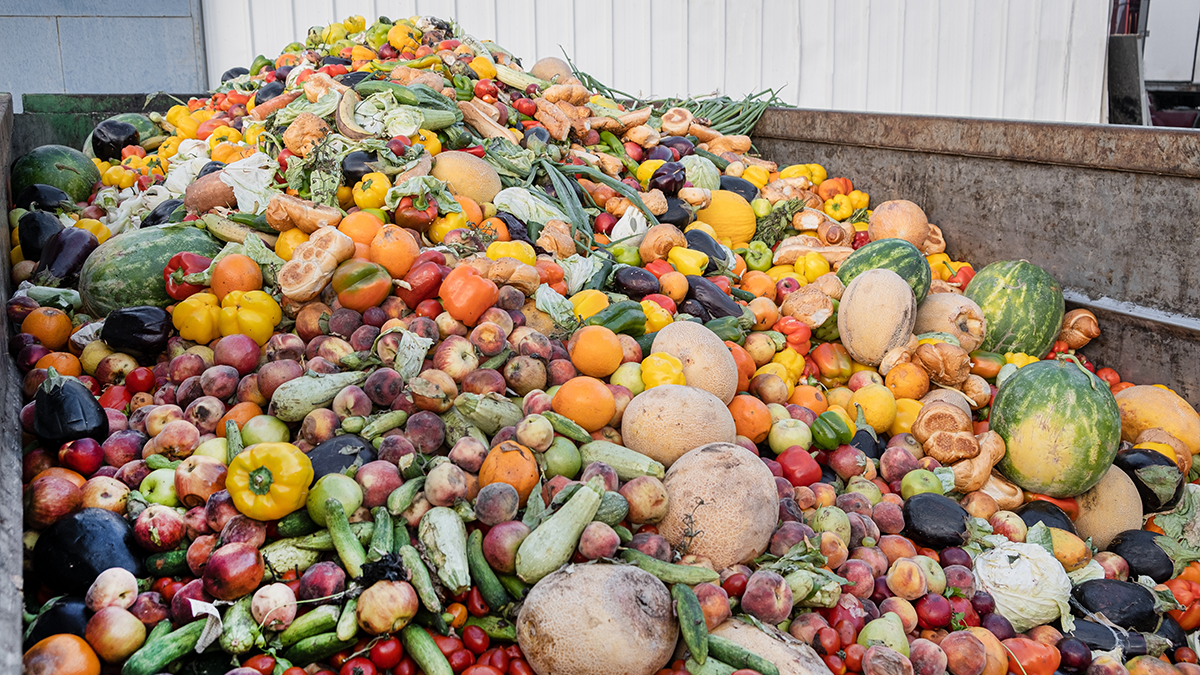
Ireland wastes 835,000 tonnes of food every year. Sylvia Thompson describes how new technology, policy ideas and redistribution schemes aim to cut waste, save money and protect the environment.
An innovative Irish start-up is helping companies prevent food waste at source while others are redistributing surplus food fit for human consumption. Yet, huge volumes of food are still wasted. What can be done to incentivise food businesses to stop wasting food while still complying with food safety protocols?
How much food is wasted?
Nobody likes to see food wasted, yet according to the Environmental Protection Agency (EPA), on average, each person in the Republic of Ireland throws out about 44kg of food over the course of one year. And if you consider all the food wasted by retailers, restaurants, catering companies, food processing plants and farms, that figure rises to about 167 kg food wasted per individual each year in Ireland.
The EPA estimates that Ireland generated 835,000 tonnes of food waste in 2023, which was an 11 per cent increase on the amount of food wasted in 2022.
The EPA estimates that Ireland generated 835,000 tonnes of food waste in 2023, which was an 11 per cent increase on the amount of food wasted in 2022. “Over 70 per cent of food waste was generated across the food supply chain – from primary production, manufacturing and processing, distribution and retail, restaurants and food services,” said a spokesperson from the EPA. The rest – 26 per cent - was generated by households.
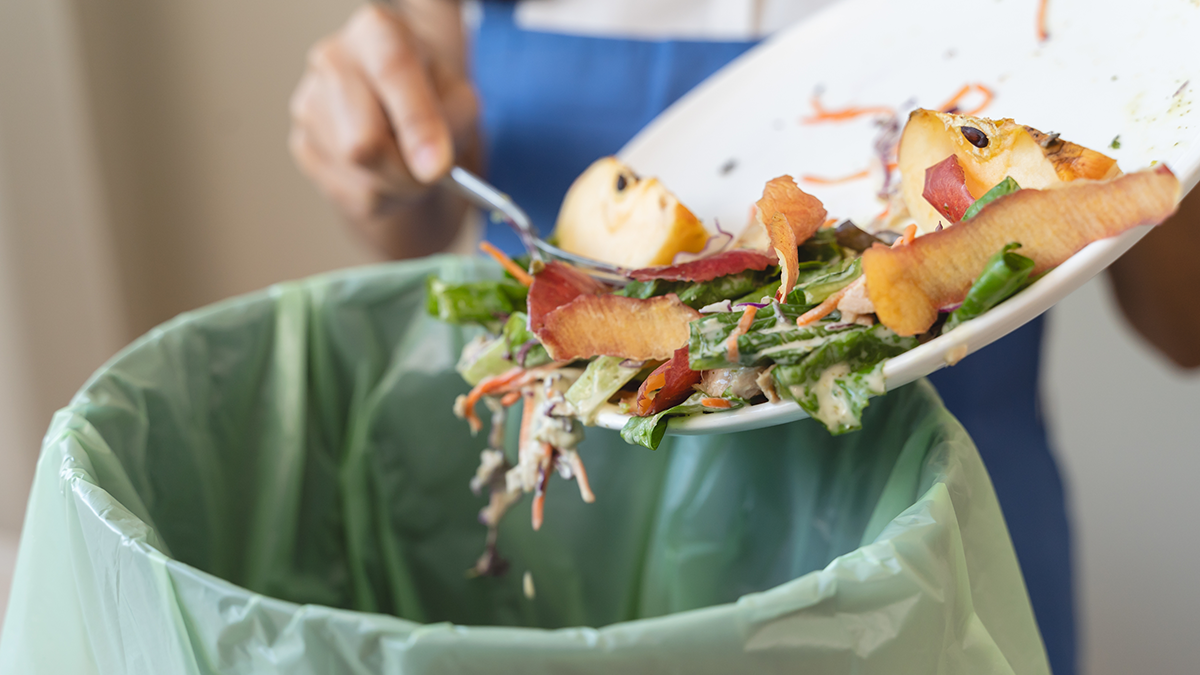
In the UK, including Northern Ireland, households generate 58 per cent of food waste (by weight).
Other sources include manufacturers (13 per cent), hospitality/food service (11 per cent), retail (2 per cent), and primary production (16 per cent). Interestingly, these figures change to 71, 12, 13 and 4 per cent respectively, when inedible food is taken out (there is no primary production figure when inedible waste is omitted).
There are three dimensions to food waste.
Firstly, the economic cost – over €300 million is lost by food service businesses annually in Ireland.
Secondly, the environmental costs: globally food waste accounts for between eight and ten per cent of greenhouse gas emissions.
And thirdly, there is the moral issue. “People don’t have enough food to eat not because of lack of production but because of lack of access to food,” says Esteban Arriaga, CEO of the European Food Bank Network whose annual convention was held in Dublin in June 2025.
Current approaches to preventing food waste
Preventing food from being wasted in the first place is the obvious place to start and innovative Irish company, Positive Carbon, is doing just that.
Positive Carbon works with over 50 food businesses in Ireland. Their AI powered sensors are installed above commercial kitchen bins, gathering data about every item that is thrown away.
“Our software then provides chefs with instant feedback on what was wasted, when and why, helping them make faster changes to reduce waste in prep, over-production and spoilage,” explains Tobi Ilori, community manager with Positive Carbon.
On average, Positive Carbon has facilitated food businesses in Ireland to reduce their food waste by 50 per cent, resulting in about €15,000 savings after 12 months.
“For larger operations like hotels, which can spend about €100,000 on food waste, the savings can be around €50,000. And for hospitals, we are seeing savings of about €120,000 in a year,” explains Ilori.
Many of the Irish companies using Positive Carbon’s AI-powered Scrappy units are also members of the EPA run Food Waste Charter. When signed up to this voluntary scheme, food businesses pledge to measure, reduce and report on their food waste. There are currently about 80 members in the scheme – the majority of whom are in manufacturing and processing, and restaurants and food service businesses.
“We follow the food waste hierarchy, so the first step is that any surplus food in our stores each evening is offered to local charities through FoodCloud. When charitable donations aren’t available locally, we link up with Olio food Waste Heroes who rescue and redistribute surplus food locally,”
– Rosemary Garth, Tesco
Tesco Ireland is a member of the EPA Food Waste Charter. Speaking at the European Food Bank Network annual convention in Dublin, Rosemary Garth explained how Tesco has reduced the levels of surplus food through better ordering, more sophisticated forecasting and by reducing items to lower prices as they come closer to their best before and use-by dates.
“We follow the food waste hierarchy, so the first step is that any surplus food in our stores each evening is offered to local charities through FoodCloud. When charitable donations aren’t available locally, we link up with Olio food Waste Heroes who rescue and redistribute surplus food locally,” she explains.
If there is still food left over, it is offered free to staff in stores before close of business and any remaining food is sent for anaerobic digestion. “No food waste has gone to landfill from Tesco Ireland stores since 2009, says Garth.
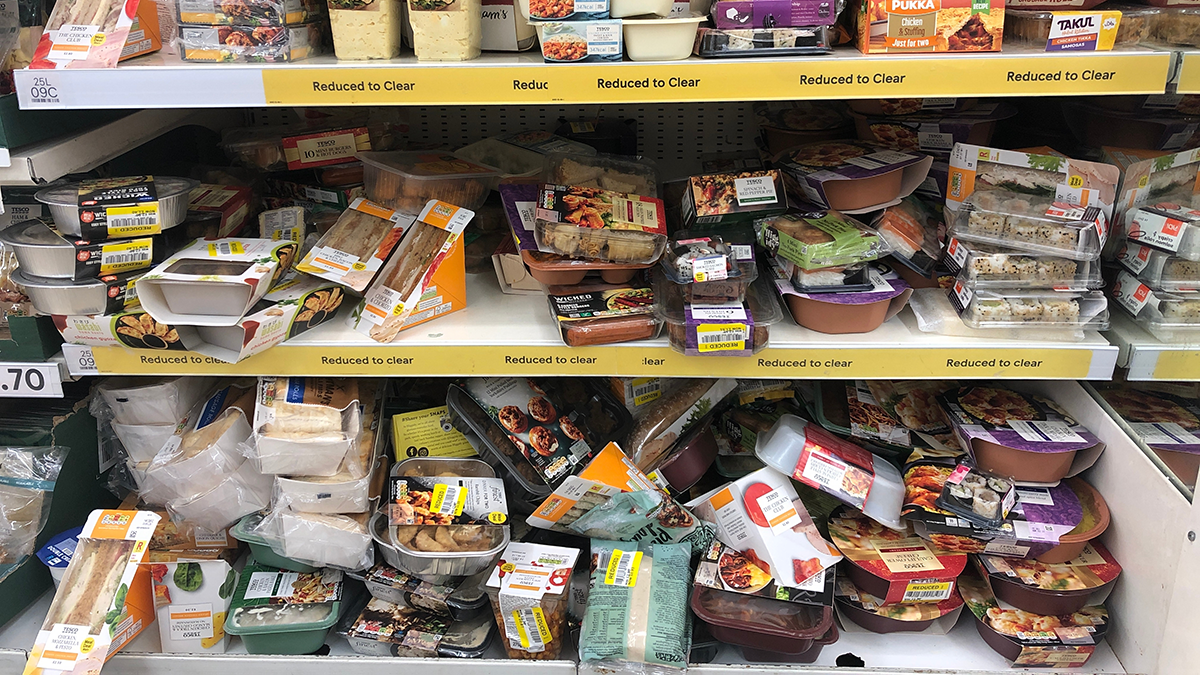
Food redistribution
Proposed revisions to the EU Waste Framework Directive – expected in autumn of 2025 – will introduce binding food waste reduction targets for EU member states by 2030. These targets will require food processing and manufacturing plants to reduce their food waste by 10 per cent and retailers, restaurants, catering companies and householders to reduce their food waste by 30 per cent using 2020 as a baseline measure.
Ireland’s National Food Waste Prevention Roadmap 2023-2025 has already committed to reducing food waste by 50 per cent in line with the UN Sustainability Goal target for 2030.
“Food Cloud redistributed about 3,900 tonnes of food last year and if we want to reach about five per cent reduction in food waste through redistribution, we will have to do seven times more than we currently do”
--Iseult Ward, co-founder of Food Cloud
Food waste reduction targets are one thing, but finding effective ways to reduce food waste in the supply chain is another.
Ireland’s largest food redistribution social enterprise, FoodCloud, wants to increase the amount of surplus food it redistributes from just over 1 per cent of the total surplus food generated in Ireland, to five per cent.
“Food Cloud redistributed about 3,900 tonnes of food last year and if we want to reach about five per cent reduction in food waste through redistribution, we will have to do seven times more than we currently do,” says Iseult Ward, co-founder of Food Cloud. These 3,900 tonnes are the total amount of food that was redistributed through their technology platform Foodiverse via their physical hubs in Ireland. The food came from 195 food partners all along the food supply chain including farmers, food producers, restaurants (a small number) and retailers.
Currently, FoodCloud redistributes food donated by retailers and food manufacturers and some primary producers through their food redistribution hubs in Dublin, Cork and Galway. They also facilitate direct redistribution networks between local food donors and charities through their app, Foodiverse.
Karen Capcarrere, head of food service and food safety at FoodCloud explains that the FoodCloud warehouses operates strict food safety and food traceability protocols at their food redistribution hubs.
“We work closely with the Food Safety Authority of Ireland (FSAI) which has guidelines for food donations and donors. We also seek advice from the HSE,” explains Capcarrere. From a dignity as well as a food safety point of view, Capcarrere says that controls are in place including with the charity partners they work with.
“A lot of our end users are vulnerable, so we have an added responsibility to them. We don’t allow charities to collect food unless they have a chill van and we insist that they have food safety training and that they are registered with environmental health officers. We also check their premises and management systems,” she explains.
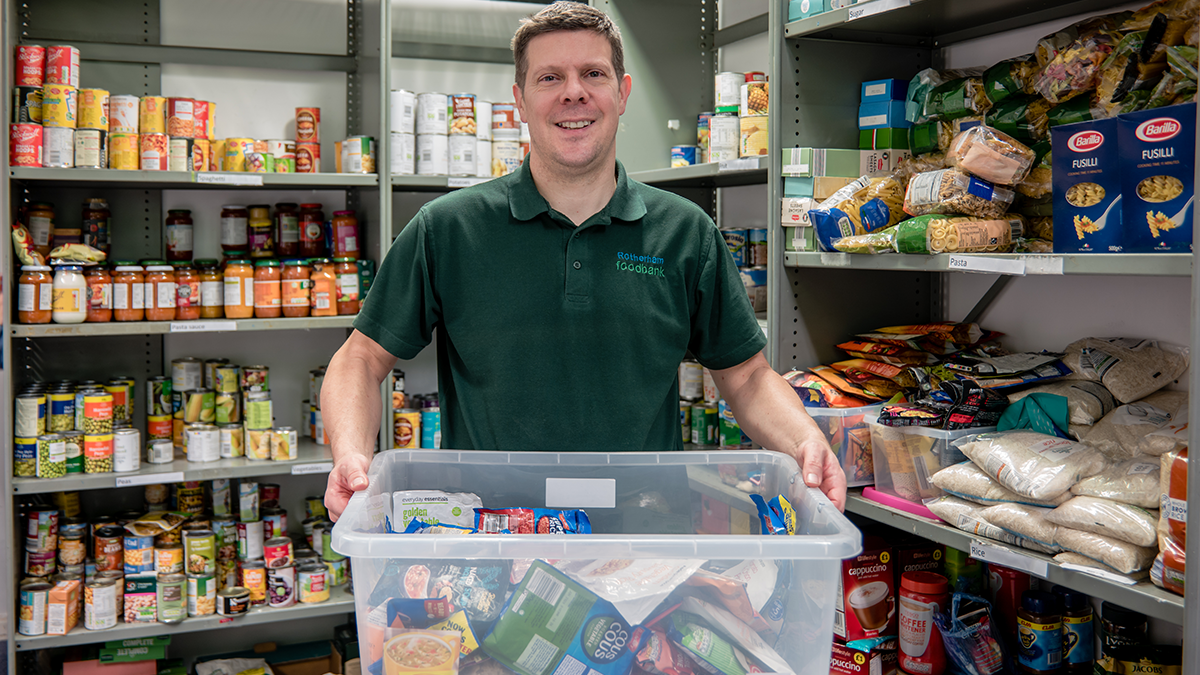
Food redistribution and food safety
Food donation companies follow the same regulations as food manufacturers and are similarly inspected by Environmental Health Officers. Food Cloud has vehicles capable of delivering frozen or chilled products and all fridges and freezers in their warehouses are monitored. Food cannot be sold or donated if the packaging is damaged due to the risk of contamination. Food cannot be donated if it is past its use-by date. However it can be redistributed to charities after its best-before date.
Confusion between best-before dates (which indicates the food is safe to eat but not at its freshest) and use-by dates (which indicates the date the food should be eaten by) is one of the issues raised as a deterrent to donation for some food businesses. Most countries outside the EU don’t have this duel labelling system and officials within the EU are currently considering whether more simplified labelling might reduce food waste, particularly among retailers and householders where confusion between best-before and use-by labelling is greatest.
Overcoming barriers to food donation and redistribution
Other ways to encourage more donation of surplus food were considered at the aforementioned European Food Banks Convention in Dublin earlier this year. Drawing on research from the Harvard Law School Food Law and Policy Clinic, delegates discussed how the introduction of a Good Samaritan Law in Ireland could increase donation of food fit for human consumption.
“This will reassure potential donors and redistribution organisations, increasing food donations and reducing legal concerns that prevent participation in food recovery efforts,” say the authors of a recent report on food waste and donations in the EU by the Food Law and Policy Clinic.
Anecdotally, some retailers and food distributors hold back products perfectly suitable for donation for fear that their reputation will be damaged in the unlikely event someone gets sick from a batch of donated food. “This is a fear that lots of food businesses have that we think will ultimately only be overcome if Ireland introduces a Good Samaritan Law,” says Angela Ruttledge, head of policy at Food Cloud.
Anecdotally, some retailers and food distributors hold back products perfectly suitable for donation for fear that their reputation will be damaged in the unlikely event someone gets sick from a batch of donated food. “This is a fear that lots of food businesses have that we think will ultimately only be overcome if Ireland introduces a Good Samaritan Law,” says Angela Ruttledge, head of policy at Food Cloud.
A Good Samaritan Law would legally protect food businesses donating food from being sued if someone became ill from donated food. Such legislation already exists in some European countries and in the United States. In the US, both donors and intermediary organisations are protected while in Italy food donors are protected from liability. Also, France and the Czech Republic have food waste laws which requires large retailers and supermarkets to have agreements with food banks or otherwise face fines for wastage of surplus food.
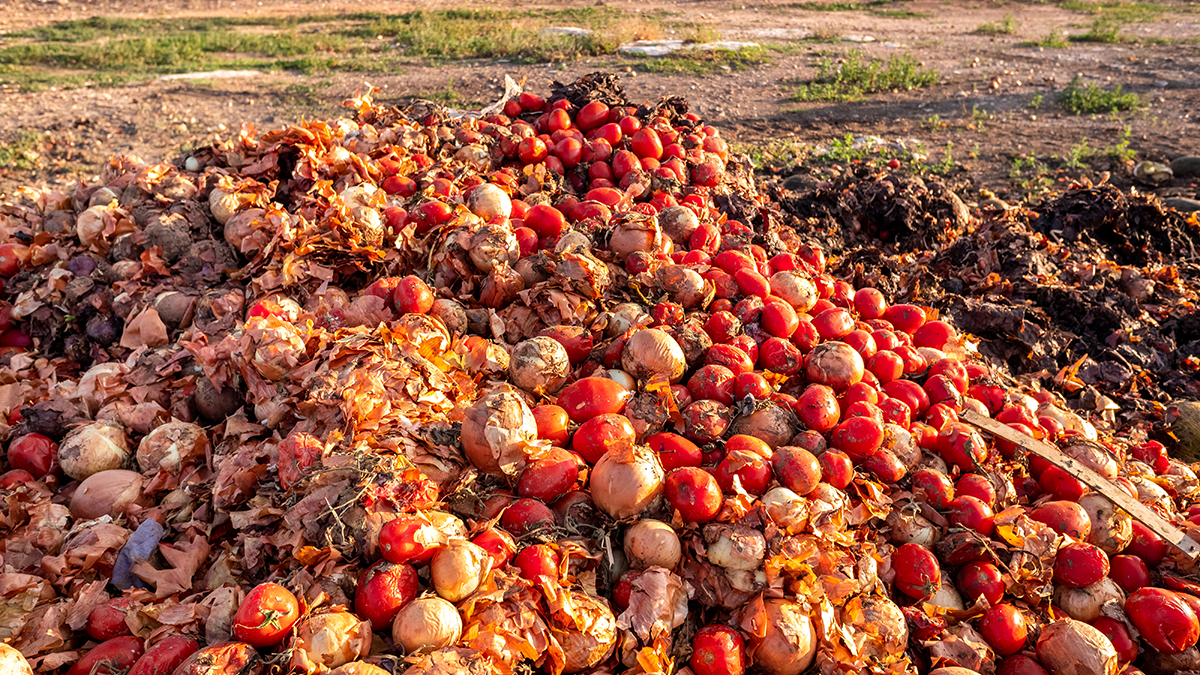
“Without a specific tax incentive for food donation, it is easier and less expensive for potential donors to send edible food to compost or landfill,” say the authors of the Global Food Donation Policy Atlas from Harvard Law School’s Food Law and Policy Clinic.
Tax credits for the storage and transportation of surplus food or the abolition of VAT on donated food are other fiscal measures that the Food Law and Policy Clinic specifically recommended to Ireland as a way to improve food donation here.
The Global Food Donation Policy Atlas also recommends that the Irish food safety regulations should be amended to include a specific food donation section to clearly state how food safety and hygiene requirements apply to donated food.
“Building on existing FSAI guidance, a comprehensive guidance note endorsed by the relevant government departments would provide a clarity to food donors and redistribution organisations and signal Ireland’s commitment to increasing food donation,” the document states. Such donation-specific food safety requirements should be incorporated into EU-wide regulations, the authors advise.
Next steps
The policymakers behind Ireland’s National Food Waste Prevention Roadmap 2023- 2025 are currently considering the impact of introducing a Good Samaritan Act. A spokesperson for the Department of Climate, Energy and the Environment which is responsible for Ireland’s National Food Waste Prevention Roadmap 2023-2025, also recently acknowledged that there needs to be more consumer awareness about the difference between best-before and use-by dates on food.
A ban on the destruction of food on its best before date is also under consideration by the Department. And as work on the next National Food Waste Prevention Roadmap (2026-2028) has already begun, food doners and food redistributors are keenly waiting to see what new measures will be introduced to reduce the amount of food wasted along the entire food chain.
Making it mandatory for food processers, restaurants and food service businesses to monitor, record and report the amount of food waste in advance of the introduction of binding food waste reduction targets for EU member states by 2030 seems like an obvious first step.



